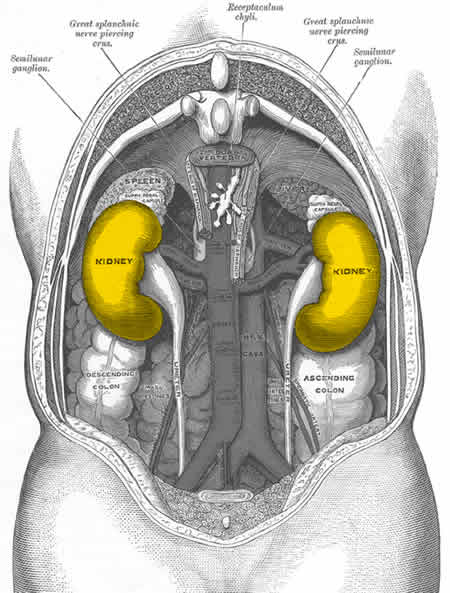People with bipolar disorder who are being treated with the drug lithium are at risk of acute kidney damage and need careful monitoring, according to new research from the University of East Anglia (UEA) and Norfolk and Suffolk NHS Foundation Trust.
Lithium is a mainstay treatment for bipolar disorder and it is known that the drug can cause a loss of kidney function. The new research establishes the link between short-term exposure to high levels and potential damage to the kidneys.
It is still not known what the impact of more than a single exposure to high levels can have on kidney function. The Norfolk team are currently exploring the effects of multiple exposures to high lithium levels.
Researchers from UEA’s School of Pharmacy and Norwich Medical School and pharmacists at Norfolk and Suffolk NHS Foundation Trust undertook a retrospective analysis of 699 Norfolk people registered on the Norfolk SystemTDM® database who have received lithium over the past 10 years.
The results show for the first time that a single high level of lithium (>1.0mmol/L) is associated with a significant decrease in filtration by the kidneys following excessive lithium exposure. Kidney function remained affected for up to nine months after exposure to a high lithium level.

Norfolk has had a county-wide lithium database and register (SystemTDM®) since 2002. The database has significantly improved rates of lithium testing and monitoring and has helped NHS services in the county to exceed national standards of care for people taking lithium.
The study analysed the SystemTDM® register to look at measures of kidney function in the three months following a high level of lithium being detected (>1.0mmol/L) when compared to people whose lithium levels never exceeded 0.8mmol/L.
Recently NICE changed its recommendation that lithium levels should be carried out every six months, a reduction from previously recommending lithium levels every three months. These results strongly support lithium level monitoring be undertaken at least every three months, in line with other UK guidelines and not be reduced.
Lead researcher Emma Kirkham from UEA’s School of Pharmacy said: “Our analysis shows for the first time that a single exposure to a lithium level greater than 1.0mmol/L is associated with an increased risk of kidney function impairment in the following three months and that the higher the level, the greater the effect.”
“This highlights the need for regular monitoring undertaken at least every three months, and that monitoring should not be reduced further until the impact of more than one high-level of lithium has been fully established.”
Professor Steve Bazire, consultant pharmacist, Norfolk and Suffolk NHS Foundation Trust, said: “The research shows why the care provided in Norfolk by NSFT through SystemTDM® is a benchmark for the rest of the UK. SystemTDM® has challenged the idea that less frequent testing of lithium may be safe. The level of care provided in Norfolk to patients taking lithium should be the norm across the country and not the exception.”
Contact: Lisa Horton – University of East Anglia
Source: University of East Anglia press release
Image Source: The image is credited to Gray’s Anatomy and is in the public domain
Original Research: Full open access research for “One lithium level >1.0 mmol/L causes an acute decline in eGFR: findings from a retrospective analysis of a monitoring database” by E Kirkham, J Skinner, T Anderson, S Bazire, M J Twigg, and J A Desborough in BMJ Open. Published online November 7 2014 doi:10.1136/bmjopen-2014-006020
One lithium level >1.0 mmol/L causes an acute decline in eGFR: findings from a retrospective analysis of a monitoring database
Lithium is a mainstay of bipolar disorder treatment, however, there are still differences in opinion on the effects of lithium use on renal function. The aim of this analysis was to determine if there is an association between short-term exposure to various elevated lithium levels and estimated-glomerular filtration rate (eGFR) at ≤3 months, 6 months (±3 months) and 1 year (±3 months) follow-up.
“One lithium level >1.0 mmol/L causes an acute decline in eGFR: findings from a retrospective analysis of a monitoring database” by E Kirkham, J Skinner, T Anderson, S Bazire, M J Twigg, and J A Desborough in BMJ Open. doi:10.1136/bmjopen-2014-006020.






